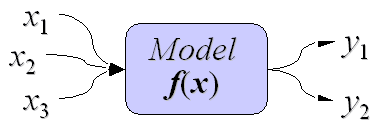http://theadvantageofleadershipnow.com/

Episode link
http://www.thepmpodcast.com/index.php?option=com_content&task=view&id=219&Itemid=9

Computer simulation has to do with using computer models to imitate real life or make predictions. When you create a model with a spreadsheet like Excel, you have a certain number of input parameters and a few equations that use those inputs to give you a set of outputs (or response variables). This type of model is usually deterministic, meaning that you get the same results no matter how many times you re-calculate. [ Example 1: A Deterministic Model for Compound Interest ]

Monte Carlo simulation is a method for iteratively evaluating a deterministic model using sets of random numbers as inputs. This method is often used when the model is complex, nonlinear, or involves more than just a couple uncertain parameters. A simulation can typically involve over 10,000 evaluations of the model, a task which in the past was only practical using super computers.
Read more
http://www.vertex42.com/ExcelArticles/mc/MonteCarloSimulation.html

 OnTime is a project management suite used by 7,000+ software dev teams. It takes care of bug tracking, scrum process automation, requirements management, the dev wiki, your support help desk, and more.
OnTime is a project management suite used by 7,000+ software dev teams. It takes care of bug tracking, scrum process automation, requirements management, the dev wiki, your support help desk, and more.



 Plan. Track. Deliver.
Plan. Track. Deliver.
| ||||||||||||||||||||
VersionOne's web-based software can be quickly deployed to a single team or across distributed organizations - with either on-demand (Saas) or on-site (local install) delivery methods. VersionOne's configurable, methodology-specific products for Scrum, Extreme Programming, DSDM and Agile UP also allow companies to easily select which product best aligns with their own internal development process. VersionOne easily scales to support multiple projects, releases and teams and incorporates all key agile and iterative management practices such as release planning, iteration planning and tracking, burndown reporting, velocity and user story (or backlog item) and task management.
Contact us today and let us show you how VersionOne's Scrum, Extreme Programming, DSDM and Agile UP products have helped agile development teams all over the world minimize project risk and maximize project visibility, predictability and adaptability.
Copyright © 2009 , VersionOne, Inc. All Rights Reserved An Agile Project Management Company








